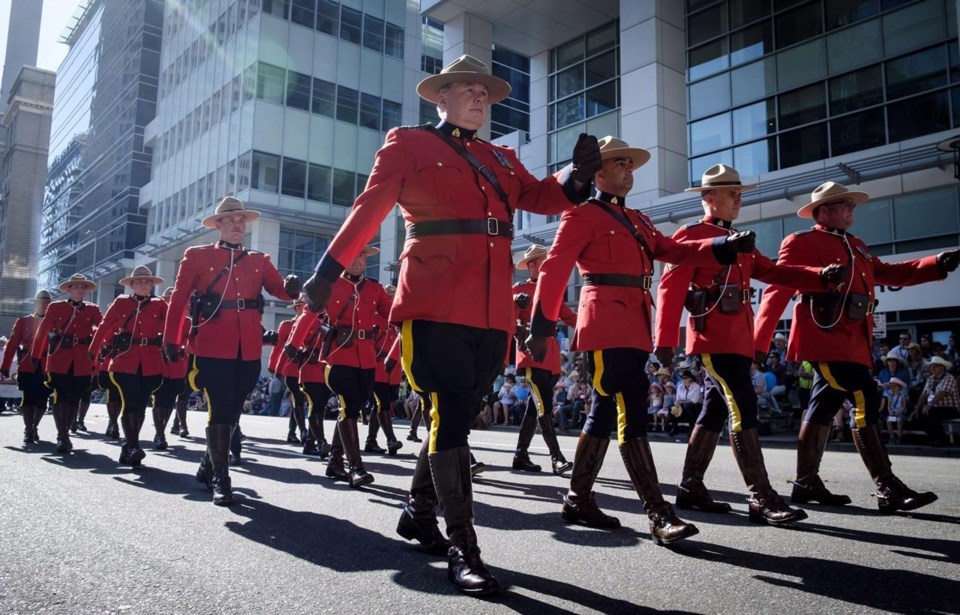NISKU, Alta. — An independent association of counties and municipal districts says it opposes the Alberta government's proposal for a provincial police force because it fails to demonstrate how that would increase service levels in rural areas.
The Rural Municipalities of Alberta says it sent a report to the Ministry of Justice and Solicitor General to formally express its stance.
"The proposed provincial police model does not address ... core priorities about levels of service, how costs will be covered and local input into policing," president Paul McLauchlin said in a news release Tuesday.
"Based on the arguments provided by the province so far, there's simply no evidence that a switch to a provincial police service will be worth the cost and disruption."
Late last year, Premier Jason Kenney asked rural leaders to consider the merits of a provincial police service and promised that any added costs would not be downloaded directly onto municipalities.
Alberta Municipalities, which represents cities in the province, passed a motion last month opposing the province's plan.
The Rural Municipalities of Alberta said its members have already endorsed a resolution to continue supporting the RCMP in Alberta.
"While the proposed model recommends a specific number of officers and support staff, it does not address how these resources would be distributed," the group said in its news release.
"Additionally, the costs presented in the report are a product of assumptions and estimates, with limited explanation of the methodology used."
In October, Kenney’s United Conservative Party government released a third-party analysis of a proposal for a provincial force instead of using the RCMP in rural areas and some smaller cities.
PricewaterhouseCoopers said it currently costs Alberta about $500 million a year for the RCMP. The federal government chips in $170 million under a cost-sharing agreement.
The report said if Alberta decided to go it alone, it would cost about $735 million each year, on top of $366 million in startup costs.
It said more cost-effective policing could be had by using existing human resources and by drafting agreements with municipal forces to share specialized police services, including canine units, air support and tactical squads.
The proposal springs from the final report from Kenney's "fair deal'' panel. It was delivered in June 2020 after consultations with Albertans on how they felt the province fares in relation to the rest of the country.
Diane Carter, acting spokesperson for Justice Minister Tyler Shandro, said the ministry has finished consultations that included more than 50 meetings with representatives from the 371 municipalities, First Nations and Métis communities policed by the RCMP.
"We’re now analyzing what we heard from stakeholders before deciding our next steps," Carter said in an email.
The Rural Municipalities of Alberta said that while the provincial police model recognizes the need for local input into policing, "it's unclear why a transition to (a provincial police service) is necessary to achieve this when there is the opportunity to work within the RCMP model."
The association adds that it is also unclear how local committees would be funded, where they would be located, and what their powers and scope would be.
"The RMA is concerned about misinformation regarding how the provincial RCMP set their priorities. The minister of justice and solicitor general has significant input on the priorities and level of service the RCMP provides," McLauchlin said.
"Inserting politics into important decisions about the cost and quality of policing and public safety in the province is quite alarming. Spending millions of dollars to shift to an unproven, poorly explained model just for the sake of distancing the province from the federal government would be a major mistake."
The National Police Federation, representing 20,000 RCMP officers across Canada, has said there is no public appetite for such a transition.
In November, it released a survey that suggested 26 per cent of Albertans supported the idea of replacing the RCMP, while 60 per cent did not and 14 per cent were undecided.
This report by The Canadian Press was first published April 5, 2022.
— By Daniela Germano in Edmonton
The Canadian Press



